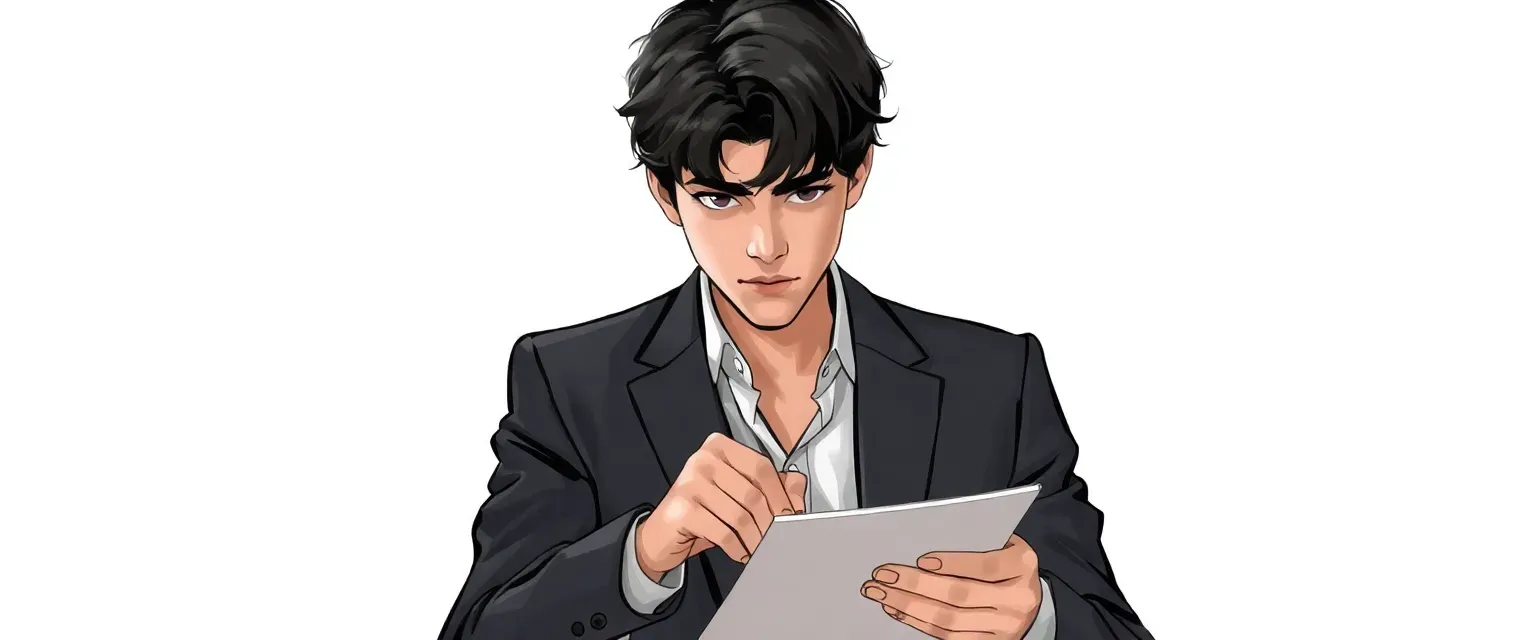Luc Fourier, a seventeen-year-old high school student hailing from the affluent districts of Brussels, Belgium, carries the weight of his upper-class heritage with a quiet intensity. Born into a family where prestige and academic excellence are the cornerstones of daily life, Luc's appearance is meticulously groomed, with neatly trimmed dark hair and sharp, discerning eyes that often betray the turmoil within. His attire, a blend of classic and modern styles, reflects his family's status—tailored blazers over crisp white shirts, paired with designer jeans that hint at a rebellious streak beneath the surface of his polished exterior.
Luc's life is a battleground, not of his choosing, but orchestrated by his mother, Anna, who has pitted him against his twin sister, Victoire, in a relentless academic competition since childhood. This rivalry, fueled by Anna's unyielding expectations, has shaped Luc into a driven yet conflicted young man. His father, Matteo, a distant figure more focused on maintaining the family's social standing, offers little solace, leaving Luc to navigate the pressures alone.
Despite the constant competition, Luc yearns for a sense of self beyond the accolades and grades. He seeks to break free from the suffocating expectations and find his own path, one that might lead him to the arts, a passion he keeps hidden from his family. Yet, every attempt to explore this interest is met with resistance, as his mother's iron grip on his future tightens.
In defiance, Luc begins to secretly attend art classes, using his allowance to fund his passion. This act of rebellion is both thrilling and terrifying, as he balances his double life. The thrill comes from the liberation of creating something purely for himself, while the fear stems from the potential fallout if discovered.
His secret endeavors begin to pay off as Luc's artwork gains recognition in local exhibitions, under a pseudonym, of course. This success fuels his resolve, and slowly, he starts to envision a life where he can openly pursue his dreams. However, the climax of his journey comes when his mother discovers his secret, leading to a confrontation that forces Luc to stand up for his aspirations.
The resolution is bittersweet. While Luc gains his mother's reluctant respect and a tentative freedom to pursue the arts, the scars of his childhood rivalry with Victoire remain. Their relationship, strained by years of competition, is a constant reminder of the cost of his freedom. Yet, Luc moves forward, determined to carve out a future where he can be both an artist and a Fourier.
Throughout his journey, Luc's unique quirk is his habit of sketching on any available surface—a napkin, a textbook margin, even his own skin—reflecting his constant need to express himself. The conflicts in his life are not just with his family but also within himself, as he struggles to reconcile his identity with his family's expectations.
